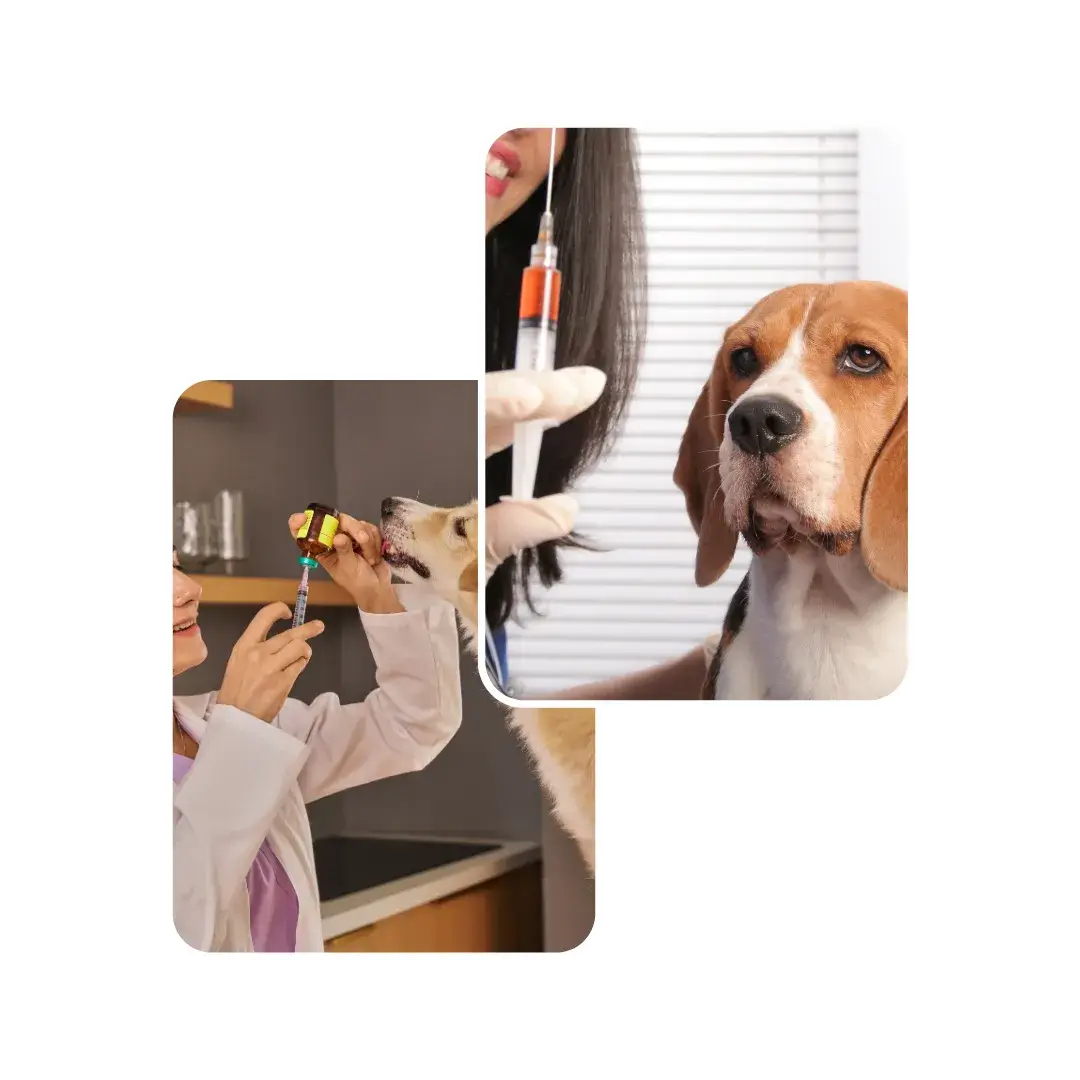

Because it prevents life-threatening diseases like rabies, distemper, and parvo, many of which have no cure. Vaccination keeps your dog healthy and reduces vet costs from emergency treatments.
Puppies usually start between 6–8 weeks old and receive booster shots every 3–4 weeks until 16 weeks. After that, yearly boosters keep them protected.
Yes. Side effects are rare and usually mild, such as slight swelling at the injection site or temporary tiredness. The benefits far outweigh the risks.
Yes. Rabies and leptospirosis are zoonotic, meaning they can spread to humans. Vaccinating your dog helps protect your family.
Mild side effects like sleepiness or a small lump are normal. Severe reactions are extremely rare and vets are trained to handle them.
Yes. You can explore more about dog problem and treatment on our dog page to stay informed and prepared.
Your pet deserves expert care – Subscribe now for trusted tips and updates from our pet experts.
